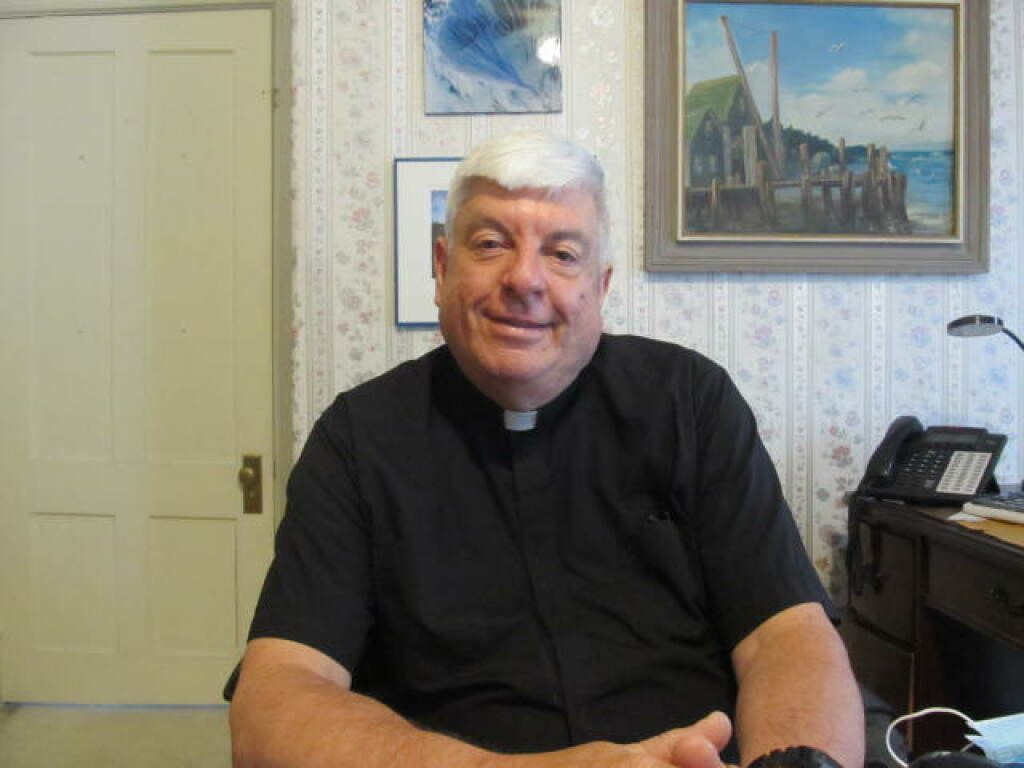 God Is For Us, Who Can Be Against Us?
God Is For Us, Who Can Be Against Us?
Homily for the Second Sunday of Lent
February 28,2021
As we did last weekend, we are going to use Pope Francis’ document for the Year of St. Joseph to guide our reflection on this Second Sunday of Lent.
We begin with the text from our second reading, Paul’s letter to the Romans: “If God is for us, who can be against us? He who did not spare his own Son but handed him over for us all, how will he not also give us everything else along with him?”
The Holy Father writes: “Joseph accepted Mary unconditionally. He trusted in the angel’s words. The nobility of Joseph’s heart is such that what he learned from the law he made dependent on charity. Today, in our world where psychological, verbal and physical abuse towards women is so evident, Joseph appears as the figure of a respectful and sensitive man. Even though he does not understand the bigger picture, he makes a decision to protect Mary’s good name, her dignity and her life. In his hesitation about how best to act, God helped him by enlightening his judgment.
“Often in life, things happen whose meaning we do not understand. Our first reaction is frequently one of disappointment and rebellion. Joseph set aside his own ideas in order to accept the course of events and, mysterious as they seemed, to embrace them, take responsibility for them and make them part of his own history….The spiritual path that Joseph traces for us is not one that explains, but accepts.”
Here’s a kind of “quirky” story to illustrate this idea of trusting and accepting the strange twists and turns of life. It’s a Jewish story about a donkey, a rooster, and a lamp. Rabbi Moshe took a trip to a strange land. He took a donkey, a rooster, and a lamp. Since he was a Jew, he was refused hospitality in the village inns, so he decided to sleep in the woods. He lit his lamp to study the holy books, but a fierce wind came up, knocking over the lamp and breaking it. The rabbi decided to turn in, saying, “All that God does, God does well.” During the night some wild animals came along and drove away the rooster and thieves stole the donkey. Moshe woke up, saw the loss, but still proclaimed, “All that God does, God does well.”
The rabbi then went back to the village where he was refused lodging, only to learn that enemy soldiers had invaded it during the night and killed all the inhabitants. He also learned that these soldiers had traveled through the same part of the woods where he lay asleep. Had his lamp not been broken he would have been discovered. Had not the rooster been chased, it would have crowed, giving him away. Had not the donkey been stolen, it would have brayed. So one more Rabbi Moshe declared, “All that God does, God does well!”
As St. Joseph found from experience, Scripture scholars point out that, quite often, God “writes with crooked lines.” Human stubbornness, anger or weakness can often thwart God’s hopes for the people, and things get really messed up, but in the end, as things play out they seem to find a way of getting back on track. So Jesus, the king of the universe, had to be born in a stable; so King Herod tried to kill him; so the family had to hurry, flee to Egypt and live in a foreign land. But that did not stop salvation from coming into the world. Joseph just put one foot in front of the other, did what he had to, and trusted that somehow things would work out. Jesus would show the same kind of dogged trust and fortitude as he trudged, battered and beaten, on the way to the cross. They had learned humility and acceptance: “If God is for us, who can be against us?”
As we did last weekend, we are going to use Pope Francis’ document for the Year of St. Joseph to guide our reflection on this Second Sunday of Lent.
We begin with the text from our second reading, Paul’s letter to the Romans: “If God is for us, who can be against us? He who did not spare his own Son but handed him over for us all, how will he not also give us everything else along with him?”
The Holy Father writes: “Joseph accepted Mary unconditionally. He trusted in the angel’s words. The nobility of Joseph’s heart is such that what he learned from the law he made dependent on charity. Today, in our world where psychological, verbal and physical abuse towards women is so evident, Joseph appears as the figure of a respectful and sensitive man. Even though he does not understand the bigger picture, he makes a decision to protect Mary’s good name, her dignity and her life. In his hesitation about how best to act, God helped him by enlightening his judgment.
“Often in life, things happen whose meaning we do not understand. Our first reaction is frequently one of disappointment and rebellion. Joseph set aside his own ideas in order to accept the course of events and, mysterious as they seemed, to embrace them, take responsibility for them and make them part of his own history….The spiritual path that Joseph traces for us is not one that explains, but accepts.”
Here’s a kind of “quirky” story to illustrate this idea of trusting and accepting the strange twists and turns of life. It’s a Jewish story about a donkey, a rooster, and a lamp. Rabbi Moshe took a trip to a strange land. He took a donkey, a rooster, and a lamp. Since he was a Jew, he was refused hospitality in the village inns, so he decided to sleep in the woods. He lit his lamp to study the holy books, but a fierce wind came up, knocking over the lamp and breaking it. The rabbi decided to turn in, saying, “All that God does, God does well.” During the night some wild animals came along and drove away the rooster and thieves stole the donkey. Moshe woke up, saw the loss, but still proclaimed, “All that God does, God does well.”
The rabbi then went back to the village where he was refused lodging, only to learn that enemy soldiers had invaded it during the night and killed all the inhabitants. He also learned that these soldiers had traveled through the same part of the woods where he lay asleep. Had his lamp not been broken he would have been discovered. Had not the rooster been chased, it would have crowed, giving him away. Had not the donkey been stolen, it would have brayed. So one more Rabbi Moshe declared, “All that God does, God does well!”
As St. Joseph found from experience, Scripture scholars point out that, quite often, God “writes with crooked lines.” Human stubbornness, anger or weakness can often thwart God’s hopes for the people, and things get really messed up, but in the end, as things play out they seem to find a way of getting back on track. So Jesus, the king of the universe, had to be born in a stable; so King Herod tried to kill him; so the family had to hurry, flee to Egypt and live in a foreign land. But that did not stop salvation from coming into the world. Joseph just put one foot in front of the other, did what he had to, and trusted that somehow things would work out. Jesus would show the same kind of dogged trust and fortitude as he trudged, battered and beaten, on the way to the cross. They had learned humility and acceptance: “If God is for us, who can be against us?”
You might also like
Father's Homilies




